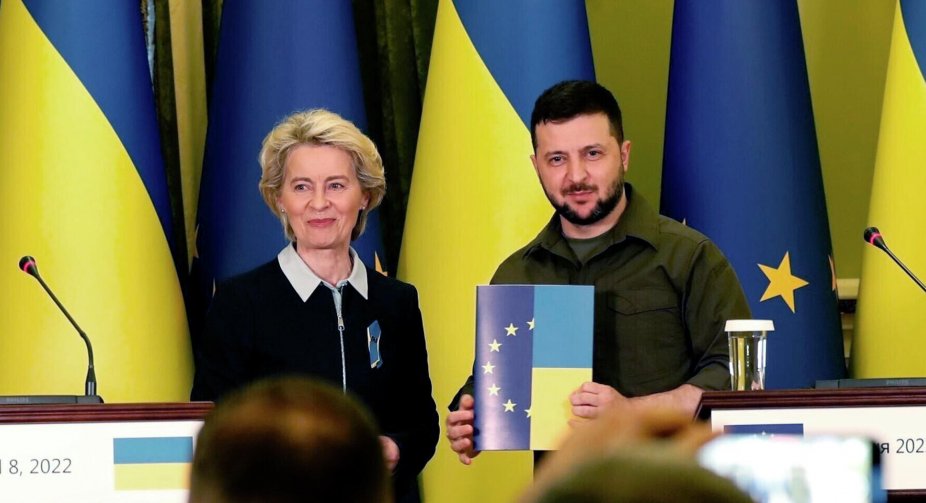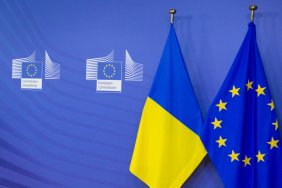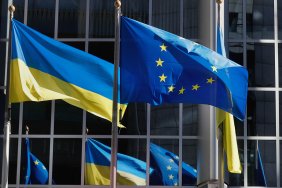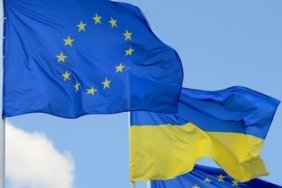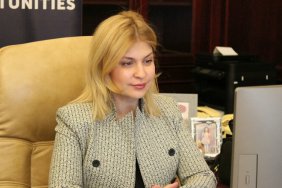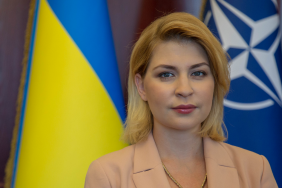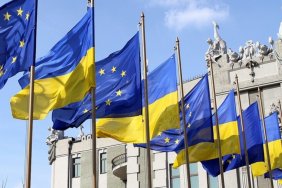Ukraine has launched a charm offensive in recent weeks to convince still-skeptical Western European capitals to grant the country EU candidate status and avoid the trap of the other two contenders, Moldova and Georgia, EURACTIV wrote.
The European Commission is expected to publish its opinion on Ukraine's candidate status next Friday (June 17), leaving EU leaders about a week to study the document before they decide on the issue at a crucial June 23-24 EU summit.
The decision, to be discussed and adopted by a panel of European commissioners, is expected to be positive and "carefully worded," according to EU officials familiar with the matter.
In recent weeks, senior Ukrainian officials have toured European capitals in anticipation of the meeting, conducting a concerted diplomatic effort.
A day earlier, on Wednesday (June 8), Ukrainian Parliament Speaker Ruslan Stefanchuk lobbied EU lawmakers in Strasbourg to support Ukraine's efforts.
"We applied in March, EU leaders made a formal political commitment that Ukraine would become part of the EU, and now we need a legal step, candidate status for EU membership," said Olga Stefanishina, Ukraine's deputy prime minister in charge of European integration. This was reported to journalists in Brussels.
"It is very important that the EU not play the game of promises," she warned.
Several EU leaders have put forward alternative solutions, such as a commitment to grant Ukraine candidate status at a later stage. Another proposal from France calls for admitting Ukraine to a broader and looser second-tier structure of neighboring countries without granting full membership.
"At least there is no consensus on saying no to Ukraine, because no EU leader can say it publicly. Instead, it's a matter of modalities," Stefanishina said.
"The other positive thing is that we have strong supporters of a positive solution from all over Europe, not just from the east or the north," she said, listing Italy, Ireland and Greece, which could be a "hidden player" in the Kyiv market.
Georgia and Moldova, the other two countries in the so-called "associated trio," applied to join the bloc immediately after Ukraine, prompted by Russia's invasion of the country.
Asked by EURACTIV if she feared that the idea of tying Ukraine's application together with Georgia and Moldova might further complicate the accession process, Stefanishina said Kiev would be "really concerned" about such a possibility.
"Speaking to capitals and also during discussions here in Brussels, that was the biggest concern, because we [the three of us] have a very different situation after the war," she said.
Nevertheless, many EU officials and diplomats have admitted in recent weeks that they think it would be difficult to lump the three eastern countries into one pile because there are few points of contact between them.
In their view, Ukraine is now in a very different situation because of the Russian invasion and could potentially be seen as a special case, while it is difficult to imagine that Georgia and Moldova could suddenly implement the reforms they have so far tried to do.
An additional obstacle for Moldova and Georgia is that both countries have separatist regions supported by Russia.
"Putting our three countries in one basket increases the number of uncertainties, gives an additional appeal to skeptics to say 'no,' because for Ukraine it is clear, for Georgia it is unclear, for Moldova it is unclear," Stefanishina said.
